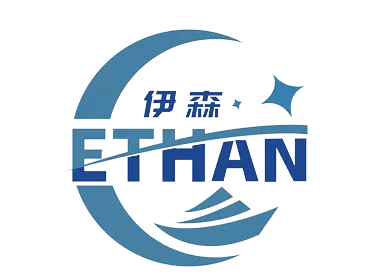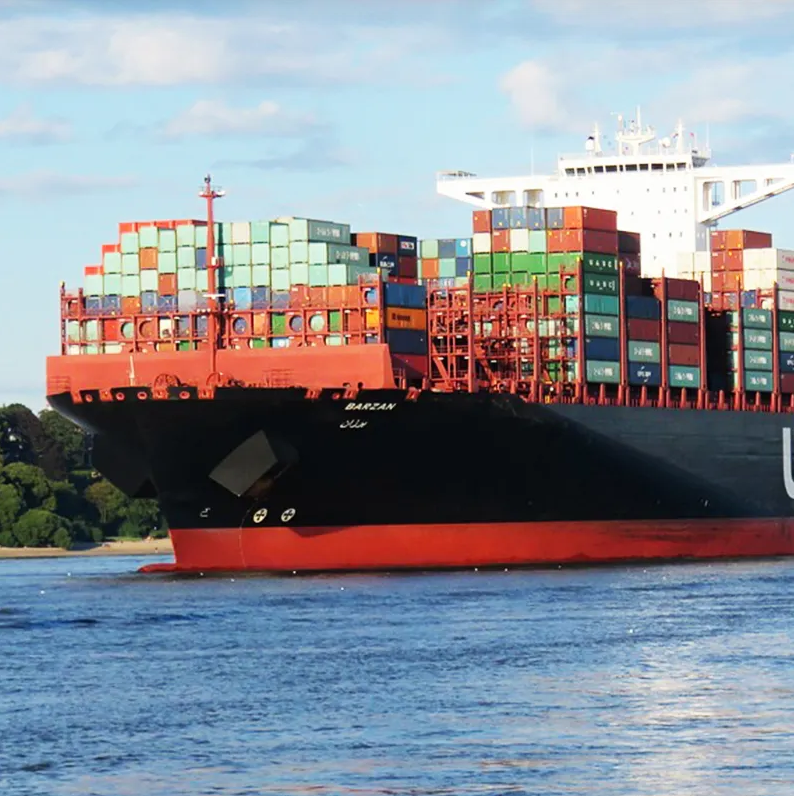Understanding the Complexity of Modern Trade Regulations
Key Regulatory Bodies Impacting Global Freight Operations
Global freight operations rely on a handful of important regulatory groups to keep things running smoothly. The World Trade Organization (WTO) basically creates the rules for international trade and helps countries negotiate agreements that directly impact how goods move around the world. Then there's the International Maritime Organization (IMO), which focuses specifically on making sure ships are safe and don't damage the environment during transport. National customs agencies also play their part by enforcing local regulations when cargo crosses borders. All these different groups work together behind the scenes to create the system that allows containers full of products to travel from factories to stores across continents every day.
Regulatory agencies keep changing as trade keeps shifting around them. With online shopping booming and digital tools becoming everywhere, traditional freight methods just don't work anymore. That's why organizations such as the World Trade Organization (WTO) and International Maritime Organization (IMO) have started bringing technology into their rules. Look at customs departments for example many are implementing EDI systems these days to speed things up while keeping cargo information safe during transit. Companies need to watch this closely though. Staying on top of old rules plus learning all these new requirements isn't easy but it's necessary if businesses want to avoid problems down the road and run their international shipping operations smoothly.
Recent Shifts in Customs Documentation Requirements
The past few years brought major changes to how companies handle customs paperwork across international trade. Think about agreements such as USMCA between North American countries or the UK's exit from the EU after Brexit. Both situations created entirely new documentation rules that caught many businesses off guard, making them rethink how they stay compliant with regulations. While some procedures actually became faster and easier to manage, other areas got much more complex. Companies now face extra steps when verifying shipments, which adds time and costs to operations that were already tight on margins.
One major change happening alongside all this is how companies are moving toward digital documentation. Many countries around the world have started pushing for electronic filing systems because they speed things up and cut down on processing delays. Freight forwarders operating globally find themselves facing mixed blessings from this digital shift. Paperwork gets easier to handle and customs clearances happen faster when everything's online. But there's a catch too. Companies need to spend money on new tech setups and train staff properly if they want to keep up with these digital standards. The cost of staying compliant might go up, and getting through the process takes longer sometimes. Still, those who figure out how to work within these new rules gain a real edge in managing freight across borders competitively.
By maintaining a clear understanding of these evolving regulations and investing in the necessary infrastructure, freight forwarders can continue to deliver value across global trade networks amid complex regulatory landscapes.
Implementing Agile Compliance Through Technology
AI-powered trade-lane monitoring systems
Trade lane monitoring is getting a major boost from artificial intelligence these days, especially when it comes to spotting problems in supply chains before they happen. Companies now have access to real time analytics tools that let them catch issues early on and fix them before things get out of hand. Take weather disruptions or those unpredictable political situations in certain regions for example. With predictive analytics at their disposal, businesses can actually plan ahead instead of scrambling after something goes wrong. We've seen plenty of cases where companies successfully combined AI technology with their current logistics setups. These integrations result in better decision making based on actual data rather than guesswork, which makes operations run smoother overall. The bottom line is clear: AI isn't just changing things around, it's fundamentally rewriting how the freight business operates day to day.
Automated HTS classification alerts for tariff changes
The Harmonized Tariff Schedule (HTS) basically organizes products for tax purposes in global trade. When companies get automatic updates about tariff shifts, they avoid getting caught off guard by unexpected changes. These alerts help businesses stay on top of things and cut down mistakes when classifying goods. Getting this right matters a lot because wrong classifications mean higher expenses and legal headaches for those moving cargo internationally. Freight companies tell stories about how automation has changed the game. Many professionals swear by these systems since they adjust fast to new rules and regulations, which keeps supply chains running smoothly despite constant policy shifts between countries.

Blockchain solutions for real-time document verification
The blockchain tech is showing serious promise when it comes to making global trade more transparent and trustworthy because of how good it is at verifying documents. When companies can check trade papers in real time, they stop a lot of the fraud and mistakes that keep messing up international shipping all the time. We're already seeing this work in practice across various supply chains where paper trails get complicated fast. The system keeps things genuine and intact throughout the whole process. While there are still some hurdles to overcome, most experts agree that as the technology matures, we'll see fewer cases of cargo theft and fake paperwork slipping through the cracks. Some logistics firms have reported cutting down on disputes by over 30% after implementing basic blockchain solutions for their documentation needs.
Navigating Geopolitical Trade Barriers
US-China Tariff Strategies and Mitigation Tactics
The ongoing trade spat between America and China remains a real headache for folks in the freight forwarding business. Tariff hikes drive up costs for products, and companies need to scramble fast just to keep their supply chains from falling apart. Many businesses are trying different approaches to handle this mess - some look for new suppliers elsewhere while others completely rethink how they move stuff around. Most analysts believe these tariffs aren't going anywhere anytime soon, which means they'll probably keep reshaping how freight moves across borders. To stay competitive, many freight forwarders now offer detailed market analysis and predictive tools so companies can anticipate what's coming next and build better contingency plans when things get unpredictable.
Emerging Nearshoring Patterns in Latin America
Nearshoring has become a big deal lately, particularly across Latin America, and it's changing how goods get moved around the world. Businesses are moving manufacturing facilities nearer to where people actually buy stuff these days, which cuts down on reliance on those long international shipping routes. We've seen investment money flowing into places like Mexico, Colombia, and Brazil over the past few years mainly because they sit right next door to huge markets such as the US and Canada. Many firms that switched to this approach found themselves dodging all sorts of trade issues while getting products to customers much faster than before. The cost savings alone make sense for most businesses, but there's another bonus too – when everything gets produced closer by, companies aren't so vulnerable to problems caused by political tensions or other global messiness.
Sanction Avoidance Through Dynamic Routing Engines
Routing engines have become essential tools for moving through complicated sanction landscapes because they can adjust quickly when regulations change overnight. The tech behind these systems lets freight companies reroute shipments fast as soon as new sanctions hit or rules get updated. We've seen this work well in practice too many times to count. One major shipping firm saved millions last year just by switching routes after unexpected sanctions were imposed. These kinds of adaptations matter most in areas where politics shift constantly. When things go sideways politically, having up-to-date information and being able to react immediately makes all the difference between smooth operations and costly delays down the line.
Meeting Sustainability-Driven Regulatory Requirements
Adapting to EU ETS Maritime Emissions Tracking
Maritime operations face major obligations under the EU Emissions Trading System (ETS) when it comes to cutting down greenhouse gases. The system works by putting limits on how much companies can emit, and these limits can actually be bought and sold between different operators. Getting compliant isn't easy though. Many ship owners struggle with finding good ways to track their emissions accurately, something that costs real money upfront. Most shipping firms end up spending big bucks on new monitoring equipment and fancy software just to keep within those strict rules. According to research from the European Environment Agency, proper tracking of emissions plays a crucial part in hitting overall climate goals. Without reliable data collection across all freight movements worldwide, we simply won't reach our environmental targets anytime soon.
FuelEU Compliance for Alternative Energy Transition
FuelEU represents a major push toward cleaner energy options for ships, with the goal of cutting down on pollution across the maritime sector. Freight companies around the world face a mixed bag when it comes to adapting to these changes. On one hand, switching to new fuel types and implementing greener tech means higher expenses upfront. But there's also value in positioning themselves as eco-friendly operators who meet evolving regulations. Experts in the field point out that getting ready for FuelEU requirements won't happen overnight. Companies need to think long term about where to invest their resources, whether that's upgrading vessels or training staff on different operating procedures. What stands out most though is how important partnerships have become during this shift. Shipping firms are increasingly working together with port authorities, equipment manufacturers, and even competitors to share knowledge and spread the financial burden of going green.
Circular Supply Chain Integration Strategies
More and more businesses are starting to see the value in circular supply chain models as they try to keep up with all these new sustainability regulations. These kinds of supply chains basically revolve around reusing what we already have, recycling materials when possible, and fixing things instead of throwing them away. The result? Less trash going into landfills and better use of our limited resources. Look at some real world examples where big corporations have implemented these practices and saved money while staying within environmental laws. Freight companies worldwide could start implementing things like shared storage spaces for equipment and creative packaging alternatives that cut down on waste. This approach doesn't just help check boxes for compliance purposes either it actually builds long term sustainability into everyday operations across the board.
Building In-House Compliance Certification Programs
Creating internal compliance certification programs makes a real difference when it comes to keeping employees up to speed on all those ever-changing regulations in the shipping world. For global freight forwarders, these kinds of programs aren't just nice to have they're essential for maintaining good service standards while dodging those nasty legal problems that come from getting things wrong. What works best? Regular training sessions, sure, but also making sure everyone has access to fresh educational materials about things like customs laws and international shipping rules. Companies need to cultivate a mindset where learning never stops and improvements are always on the table. When done right, this kind of investment pays off big time. Businesses become more reliable partners for clients, face fewer regulatory headaches, and generally earn trust across the board. Looking at the bigger picture, companies that take compliance seriously tend to stand out in today's competitive logistics market, where staying ahead means understanding both the letter and spirit of the law.
Developing Strategic Customs Brokerage Partnerships
Working with experienced customs brokers makes all the difference when dealing with the maze of international trade rules. The main advantage? Getting things done right the first time without mountains of paperwork errors piling up. Good brokers don't just check boxes on compliance forms they actually become problem solvers who know exactly where to look when something goes wrong at the border. Take XYZ Logistics for instance they cut down shipment delays by 40% after teaming up with a top notch customs firm last year. For freight companies looking to stay ahead, building strong relationships with reliable brokers isn't just smart business it's practically essential. These partnerships help keep operations running smoothly while also building confidence among customers who want their goods delivered on time every time.
Leveraging AEO Status for Preferential Clearance
Getting Authorized Economic Operator (AEO) status gives businesses a real edge when it comes to international trade. Companies with AEO status typically face quicker customs checks and get inspected less often. The process for obtaining this status isn't exactly simple though. Businesses need to show they have solid security protocols in place and follow all the necessary customs rules during their application. Real world stats back this up too many firms report noticeably faster processing at borders once certified. While working through all these requirements might seem overwhelming at first glance, those who manage to secure AEO status find themselves moving goods across borders much more efficiently, which ultimately means happier customers and better bottom line results for their global operations.
Future-Proofing Against Regulatory Shifts
Predictive Analytics for Trade Policy Forecasting
The use of predictive analytics gives companies a real advantage when trying to stay ahead of regulatory changes affecting global freight movements. Looking at trends across different data points like past shipping records, economic stats, and even political news helps firms spot what trade policies might be coming next. When companies get this kind of heads up, they can adjust their plans before problems hit. Take some major logistics firms for example who recently avoided millions in compliance costs simply because their predictive models flagged possible changes in customs requirements months before they officially took effect. Beyond just avoiding headaches, these insights let businesses position themselves better than competitors facing the same regulatory hurdles.
Modular Contract Frameworks for Tariff Volatility
Modular contract setups really help companies deal with all those unpredictable tariff changes happening around the world. When regulations shift suddenly, these flexible agreements let businesses adapt quickly while still staying compliant and running smoothly. The contracts typically include special clauses that cover various possible tariff situations, so companies stay nimble without losing track of what costs might look like down the road. Take the auto industry as an example they've been using these modular deals for years now to protect themselves when tariffs spike unexpectedly. Same goes for electronics manufacturers who need stable parts supplies even during rough economic times. Companies that adopt this kind of approach tend to weather market ups and downs much better than those stuck with rigid old contracts.
Cross-Training Staff on Multilateral Agreement Updates
Keeping up with how international trade is changing means making sure staff gets trained on what's new in those big multilateral agreements. When teams stay informed about these changes, they can handle global freight operations better. Good training usually mixes things like hands on workshops, web based learning materials, plus monthly catch ups where everyone gets updates. A recent survey from last year showed that businesses which do this kind of cross training saw around 30 percent better results when it comes to following rules and getting things done faster. Looking at all this makes sense why companies should spend time developing their people. It builds a solid base for handling whatever happens next as those trade deals between countries continue to shift around.
By embracing these strategiesâpredictive analytics, modular contracts, and comprehensive cross-trainingâwe can enhance our resilience against regulatory shifts and ensure that our operations remain agile and compliant in a dynamic global environment.
FAQ Section
What are the key regulatory bodies impacting global freight operations?
The key regulatory bodies impacting global freight operations include the World Trade Organization (WTO), International Maritime Organization (IMO), and regional customs authorities.
How has digitalization affected customs documentation requirements?
Digitalization has led to a shift towards electronic filing systems, simplifying paperwork and expediting customs clearance but also requiring investment in technology and training.
Can AI help in trade-lane monitoring?
Yes, AI can help predict supply chain disruptions by offering real-time analytics and insights, assisting in proactive issue resolution.
What advantages does AEO status offer to businesses?
AEO status offers advantages like expedited customs clearance and reduced inspection rates, providing improved customer satisfaction and operational efficiency.
Why is cross-training staff important for multilateral agreement updates?
Cross-training is important to ensure staff remain well-informed about international trade changes, enhancing compliance and operational resilience.
Table of Contents
-
Understanding the Complexity of Modern Trade Regulations
- Key Regulatory Bodies Impacting Global Freight Operations
- Recent Shifts in Customs Documentation Requirements
- Implementing Agile Compliance Through Technology
- AI-powered trade-lane monitoring systems
- Automated HTS classification alerts for tariff changes
- Blockchain solutions for real-time document verification
- Navigating Geopolitical Trade Barriers
- US-China Tariff Strategies and Mitigation Tactics
- Emerging Nearshoring Patterns in Latin America
- Sanction Avoidance Through Dynamic Routing Engines
- Meeting Sustainability-Driven Regulatory Requirements
- Adapting to EU ETS Maritime Emissions Tracking
- FuelEU Compliance for Alternative Energy Transition
- Circular Supply Chain Integration Strategies
- Building In-House Compliance Certification Programs
- Developing Strategic Customs Brokerage Partnerships
- Leveraging AEO Status for Preferential Clearance
- Future-Proofing Against Regulatory Shifts
- Predictive Analytics for Trade Policy Forecasting
- Modular Contract Frameworks for Tariff Volatility
- Cross-Training Staff on Multilateral Agreement Updates
-
FAQ Section
- What are the key regulatory bodies impacting global freight operations?
- How has digitalization affected customs documentation requirements?
- Can AI help in trade-lane monitoring?
- What advantages does AEO status offer to businesses?
- Why is cross-training staff important for multilateral agreement updates?


